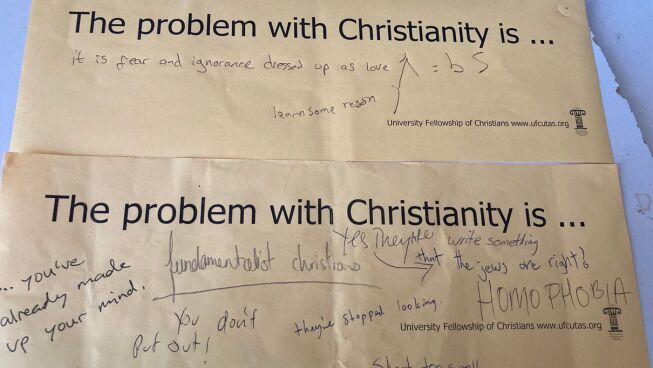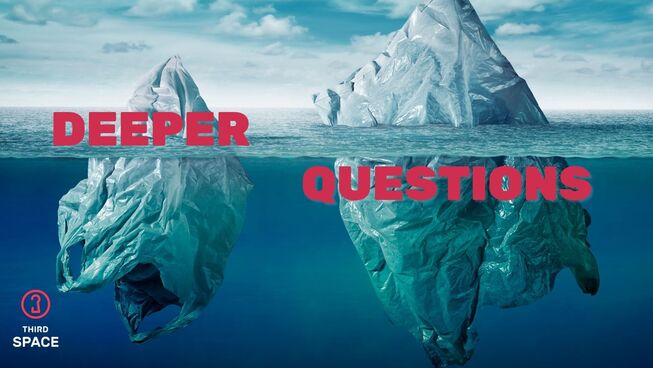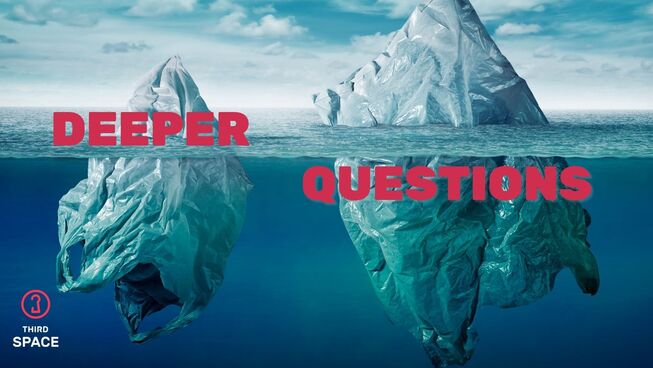Are we selling apologetics short? (Part 1 of 2)

Back in my University days our local Christian Union ran a helter-skelter outreach campaign titled "The problem with Christianity is…” It was an enthralling, exhausting, and eye-opening experience as we sought to hear any and every objection to the Christian faith. And boy were there objections.
We had surveys, stalls, sausage giveaways, and small posters plastered around the campus that led to rich conversations and deep engagement. There were all kinds of valuable insights, experiences and stories that came from the campaign. Especially from those who took the campaign seriously.
Some shared eagerly, some took a while to warm up. Some came for the lols, and stayed for the trolls. Others shared anonymously, still others shared through their pain. Others thanked us for creating a space for deep conversation. One sceptic talked to us every day, and even jumped over to our side of the stall to chat with passers by and to try and get his fellow sceptical friends to come over and be part of it.
It was a highly formative experience for me and my peers as we learnt that ‘defending the faith’ was so much more than lobbing truth grenades or having the knock down argument ready (not that they exist).
Do apologetics even work now?
It’s interesting thinking about the place of apologetics in Australia in the modern context, and whether such a campaign would gather the same level of interest. Certainly uni campuses are far more fragmented and complicated than before, with online learning dramatically changing the student landscape over the last couple of decades. But more than that I’m not sure people are as angry or annoyed at religion as they were back then (though some certainly are).
If anything, Christianity feels almost completely irrelevant, and an afterthought - which makes evangelistic opportunities harder and less frequent. Rather than being on the back foot, our faith is often in the back closet, hidden behind the coats, and the cleaning supplies.
I work for City Bible Forum, and during September our national Dive Deeper campaign begins, where we encourage Christians all around Australia to attempt three spiritual conversations over three weeks, and then share how you went with others doing it.
How does that sound? Easy? Scary? Fun? Someone else’s job?
When we think of evangelism and spiritual conversations it’s to conflate it with needing to have all the answers to all the hard questions (i.e. apologetics). But I want to explore whether we are not only misunderstanding the relationship between evangelism and apologetics but also overlooking the full range of what apologetics can be.
Many of us will know that apologetics originated from a legal context in ancient Greece, where a charge or accusation would be made and someone could give their 'apologia' (ἀπολογέομαι) i.e. their defence. And this language pops up regularly in the New Testament (Acts 22:1; 25:8; 24:10; 26:2, 24; 1 Cor 9:3; Phil 1:7, 16) both at a personal level, and in defence of the gospel.
The most famous verse of course is 1 Peter 3:15, where your primary defence is to “give an account for the hope that is in you” (NRSV) with gentleness and respect an important disclaimer. What this means is that apologetics can be not only defending the faith, but commending it too.
Sharing - much less honing in on - the hope that we have can be hard when we feel assailed on all sides with difficult questions. But maybe we can expand our understanding of apologetics, and adjust our posture ever so slightly? But to do that we should probably understand our current strategies and why they're difficult.
Our existing strategies are mostly defensive (by design)
When most of us think of apologetics, there are probably certain arguments or questions that come to mind:
- How can a ‘good’ God allow suffering?
- What’s the evidence for God’s existence?
- Is the Bible historically reliable?
- Aren’t science and faith incompatible?
- Hasn’t the Bible changed/been corrupted over time?
Let's call the responses to these... Classical Apologetics. These incredibly weighty questions have come up often, and will no doubt continue to be asked. And so we would do well to have at the very least satisfactory answers for those who raise them.
Classical Apologetics
Thankfully there have been brilliant minds throughout Christian history that have been able to go beyond the satisfactory. Whether it’s historical figures such as:
- Thomas Aquinas,
- Blaise Pascal,
- William of Occam,
- Justin Martyr,
- Tertullian.
Or there are contemporary thinkers such as:
- William Lane Craig,
- Alister McGrath,
- Alvin Plantinga,
- John Lennox,
- Norman Geisler,
- Paul Copan,
- Gary Habermas
and many others who skillfully show the rationality and coherence of Christian faith in light of these charges. It’s super important to have people like these who commit their professional academic careers to exploring the most difficult questions, and who are able to make sophisticated arguments that are intellectually satisfying.
Many of these arguments find their way into sermons, blogs, podcasts and popular level books, meaning not only are thoughtful answers readily accessible for sceptics who ask them, but the church can be trained/skilled up to borrow some of these arguments when the times come.
It can be hard to employ these, particularly when we come at them as laypeople...
but hey, most of the time our sceptical friends will be just as inexperienced when it comes to the arguments they adopt. So they're still worth giving a crack, regardless of the outcome.
Just as our culture will ask questions that have been asked for centuries, there are also novel questions that pop up based on evolving social norms, and situational moments where Christian thought will come into conflict with culture. Some of these questions come and go with the news cycle, but some of them stick around and become another brick in the wall for that particular culture to resist Christianity. So these become questions that we need to answer too. Let’s call these Cultural Apologetics.
Cultural Apologetics
Discussions around
- politics,
- gender,
- race,
- identity,
- economics,
- the natural world,
- and our social responsibilities
all present challenges and opportunities to develop and articulate a Christian ethic or framework that links back to the gospel. In many ways, these are some of the more difficult arguments because those engaged in the conversation tend to be much more emotionally invested in these questions/critiques, as they relate to real-world problems with real-world consequences. Unlike many of the classical apologetics questions, they are more than an intellectual exercise and demand heightened sensitivity and a grasp of the news as it unfolds. The goalposts can regularly shift, and pushback can seem reactive and regressive.
Sometimes Christians will be able to agree wholeheartedly, other times there will be caution and hesitation to be swept up in the cultural tide.
On top of that, Christians will often disagree on which approaches, arguments and stances to adopt in light of a disagreeable culture (see Niebuhr’s classic 'Christ and Culture' for five classic archetypes). It ends up meaning that Christians often fragment based on their political affiliations and dispositions.
Having said all that, there are still some great opportunities to be found here. We may not be seen as the authoritative moral gatekeepers in the ways we once were from a collective standpoint, but at an individual level, our friends and colleagues will still be really interested to know how we process curly and complicated questions that they themselves are still working through.
How can we speak into cultural moments?
When something hits the news cycle with unstoppable force, and everyone is talking about it, we ought to have something unique and hopeful that contributes to the conversation, and points to the north star of Christ. Things that go far beyond our politics, tribes and culture wars. Things that go beyond an ephemeral moment, and speak of eternal truth. I won’t be too prescriptive here on how to go about it, but know that it’s something we try and support Christians with, both in our City Bible Forum resources and our Third Space content.
So these are two of the common ‘defending the faith’ situations we may find ourselves in throughout the week. I suspect most people will be hesitant to start a controversial argument or potentially hurt our feelings, but they are questions that are out there for us to explore. Some will be gifted in these scenarios and conversations, but many won’t - and hence will understandably retreat from these situations. So maybe we need some new strategies and forms of apologetics that can help us be proactive.
So what does commending the faith look like?
What does it mean to do apologetics in a proactive sense?
Well, join us for part two of this mini-series of articles where I'll commend Positive Apologetics. But before you do that, open a separate tab and sign up for Dive Deeper today to be surrounded by a community of people who are proactive in sharing their faith this month.








